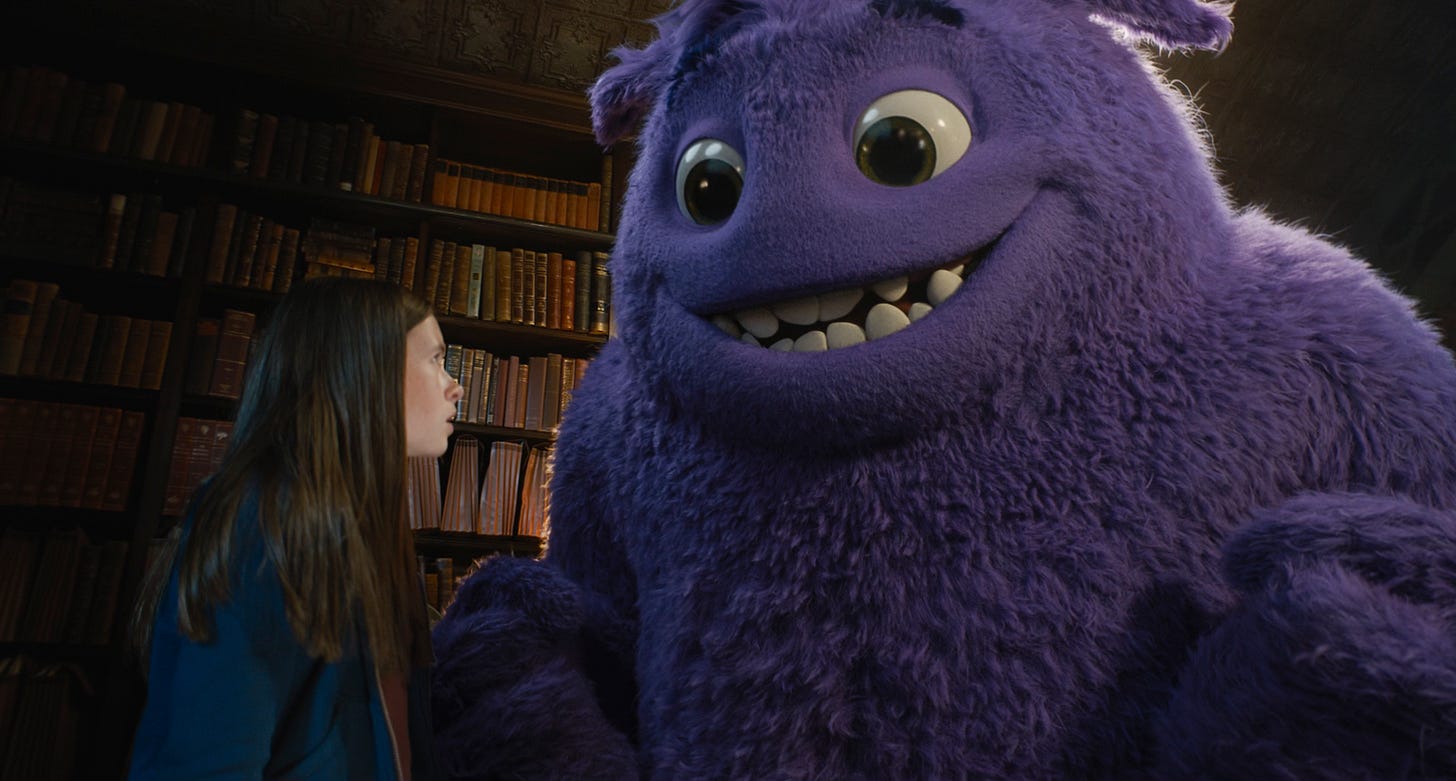Friday new releases: 17 May 2024
IF, The Way, My Way and Joika are in cinemas.
There’s usually an unspoken contract between the viewer and a movie and it’s when that contract gets broken that something interesting happens.
I’ll give you an example.
The trailer for John Krasinski’s IF promises a wacky Ryan Reynolds comedy, full of his usual deadpan wisecracks alongside some amusing CGI creatures. The contract with me, therefore, was that I was going to hate it and – when it looked as if time was going to be too tight to see everything, IF was very nearly the film that fell by the wayside.
Well, friends, I’m glad it didn’t because the actual film went ahead and broke that contract by being quite good and even – surprisingly for a story about children’s imaginary friends – quite grown-up.
Even Reynolds dials down his regular persona and the film’s ingratiating jocularity – all of it squeezed into that trailer – works much better when it is spaced out a bit.
Cailey Fleming plays 12-year-old Bea, sent to live with her grandmother in Brooklyn while her father (writer-director John Krasinski) recovers from the recent death of Bea’s mother.
Determined to be as grown-up as possible, Bea is surprised to find that she can see Blue, a giant purple fluffy monster (voiced by Steve Carell) who lives in the apartment upstairs with kind-hearted Cal (Reynolds). Blue was once someone’s imaginary friend but when the child gets too old, they forget them. Cal’s mission is to find new children for these orphaned IFs and, reluctantly, he enlists Bea to help.
The idea that adults lose something special when they grow up and that imagination and play are important to us all, is not particularly novel. Indeed, Krasinski drops evidence of what you might call ‘prior art’ all over the place.
What I was not expecting was the air of melancholy that hovers over the film – I don’t think kids are going to be the audience that gets the most out of it.
If you go and see IF this weekend, do stay to the end of the credits. Not because there are any hints about an IF 2 or anything like that, there’s just a lovely tribute to one of the senior cast members, Louis Gossett Jr.
The contract that an audience has with films about the pilgrimage of the Camino de Santiago is that the pilgrims will finish the trip spiritually enriched or transformed in some way, at least that’s my understanding.
So it was somewhat disappointing that in Bill Bennett’s autobiographical The Way, My Way, “Bill” experiences very little in the way of growth. Indeed, the result of the hundreds of kilometres that he walks is that he becomes slightly less disagreeable to his walking companions and slightly more acceptable to his long suffering wife (played by Bennett’s real-life wife Jennifer Cluff). The operative part of the film’s title is “My Way” not “The Way”, after all.




